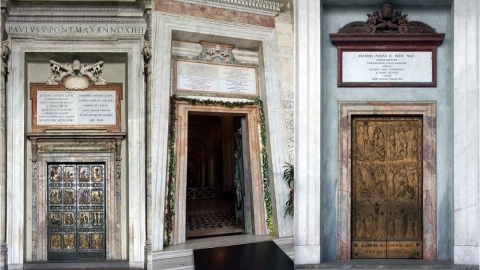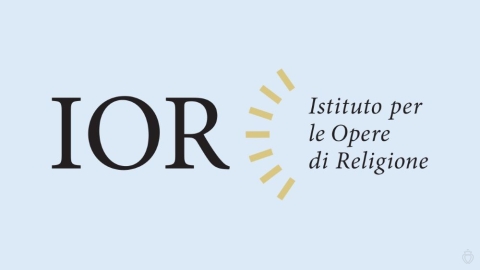The Vatican Stresses “Green” Diplomacy

Logo of the United Nations Climate Change Conference, also called COP28 (the 28th meeting of the Conference of the Parties), occurring in Dubai (United Arab Emirates)
The Supreme Pontiff’s trip for COP28 in Dubai (UAE)—which was announced, then canceled—illustrates the “green” aspect of Vatican foreign policy, which attempts to revive itself at a moment when the world is on fire, seeming to mark the limits of a multilateralism that has been encouraged for several decades by the Holy See.
From November 30 to December 12, Dubai is hosting the UN’s Climate Change Conference, whose stated intent is to both reduce greenhouse gases and help developing countries face the consequences of climate change—which is considered a global emergency.
The participation of the Holy See was announced less than a month after the publication, on October 4, of the Roman Pontiff’s new text on the climate titled Laudate Deum—“Praise God”—which calls, among other things, for world powers to abandon the use of fossil fuels.
This is a way for the Vatican to revive the multilateral aspect of its international action at a moment when Roman foreign policy is slowing down—notably in Ukraine, where the mediation of Cardinal Matteo Zuppi, the Pope’s special envoy in the region, has ended in a lack of results.
But this problem extends to the Middle East, where the Holy See also appears powerless to make itself heard, in a moment when the region is ablaze with the deadly war set off between the State of Israel and the Islamist organization Hamas—a war which threatens the very existence of a Christian presence in the region.
A Paradoxical Diplomacy
The diplomacy in effect under the current pontificate rests on a paradox: on one hand, “no one can save himself,” as the Successor of Peter often repeats, combatting the “reemergence of tendencies to impose and pursue individual national interests” which, according to him, cause the fragmentation of solutions in a more and more divided world. In this perspective, the choice of multilateralism would be the only possible option to ensure the future of a better and more fraternal world.
On the other hand, the Roman Pontiff observes the crisis of confidence which affects multilateral diplomacy—a crisis which is, according to him, due to the “drop in credibility of social, governmental, and intergovernmental systems,” as well as a form of “ideological colonization which does not leave room for liberty of expression and which, today, more and more takes the form of cancel culture, which invades numerous domains and public institutions.”
This is a paradox that green diplomacy is supposed to overcome: by emphasizing “collective awareness” and the necessity of “taking care of our common home,” States could realize that there are “permanent and fundamental values which are above all consensus.” Could this utopia be a way out for a pontificate that is mired in the synodal process?
At the Last Minute
Pope Francis had announced his plans to head the Vatican delegation, but on Tuesday, November 8, the Director of the Holy See Press Office, Matteo Bruni, notified the public of the cancellation of the papal trip, for health reasons. The Pope has been suffering from a “flu-like condition” with “inflammation of the respiratory tract” for several days.
The statement clarifies: “Although the Holy Father’s general clinical picture has improved with regard to his ‘flu-like condition and inflammation of the respiratory tract, the doctors have advised the Pope not to make the trip planned for the coming days to Dubai [...] Pope Francis accepted the doctors' request with great regret and the trip is therefore cancelled.”
Nevertheless, the statement stresses that the Pope still wishes to participate in the Dubai discussions and that the methods for his participation in the Conference will soon be defined.
Francis, who will be 87 on December 17, has regularly suffered from more or less significant health problems—over the past three years especially—health problems which have not prevented him from making five international trips in 2023.
(Source : Vatican News/“X” Vatican News – FSSPX.Actualités)





